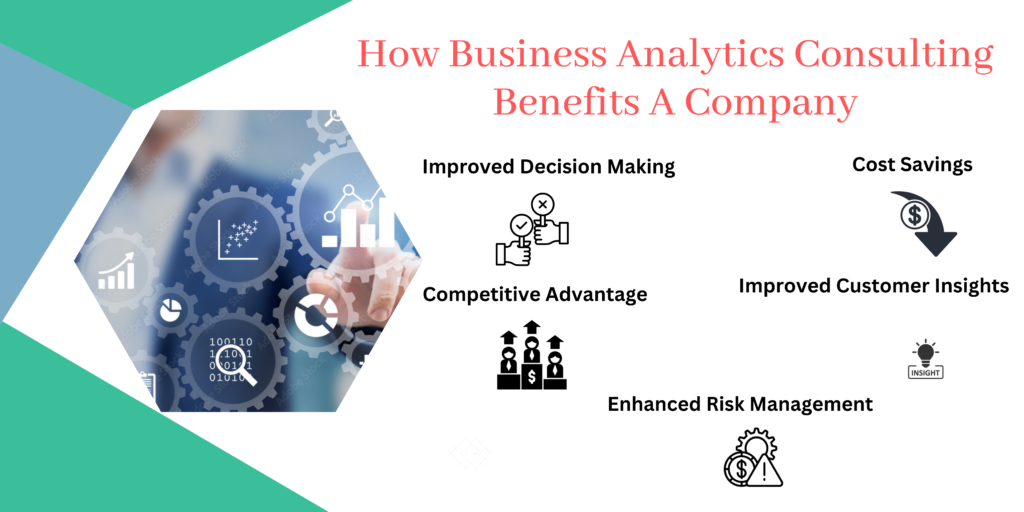Technology has revolutionised the world in every aspect of life, and businesses are no exception. Today's organisations increasingly rely on technology to achieve their goals, streamline operations, and increase productivity. However, with the ever-evolving world of technology, businesses often face challenges in optimising their IT infrastructure to keep up with the latest trends, advancements, and changes in the industry. This is where IT consulting services come into play. In today's fast-paced business world, IT consulting has become a critical element in ensuring the success of any organisation. Companies need to keep up with the latest technology trends, increase efficiency and reduce costs, and they need expert guidance to achieve these goals. IT consulting services provide businesses with the knowledge, expertise, and guidance they need to optimise their IT architecture consulting, make informed decisions, and stay ahead of the competition.
What is IT Consulting?
IT consulting is a service that offers specialised advice and recommendations to businesses to help them optimise their IT infrastructure, align their technology with their business goals, and increase efficiency. IT consulting services are designed to provide businesses with expert guidance on effectively leveraging technology to improve their operations and meet their objectives. An IT consulting company can be broad or specialized, and the scope of services offered can vary depending on the consultant's expertise and the organization's needs. Some common areas that IT consulting companies specialize in include:-
IT Strategy and Planning
-
IT Architecture and Design
-
Cybersecurity and Risk Management
-
Cloud Computing
-
Infrastructure Optimization
-
Software Development and Integration
Starting an IT Consulting Business:
Starting an IT consulting company can be a lucrative and rewarding career path for those with a passion for technology and a desire to help businesses boost their IT infrastructure with business analytics consulting.Here is a step-by-step guide on how to start an IT consulting business:
Step 1: Determine Your Niche
The first step in starting an IT consulting company is determining your expertise. IT consulting services can be broad or specialized, and the scope of services offered can vary depending on the consultant's expertise and the organization's needs. Some common areas that IT consulting firms specialize in include IT Strategy and Planning, IT Architecture Consulting and Design, Cybersecurity and Risk Management, Cloud Computing, Infrastructure Optimization, and Software Development and Integration. Identifying your niche based on your skills, experience, and interest is essential. Specializing in a particular area can help you stand out and position yourself as an expert.Step 2: Develop Your Business Plan
Once you have identified your niche, it's time to develop your business plan. Your business plan should outline your goals, target market, pricing strategy, marketing plan, and financial projections. A well-written business plan can help you secure funding, attract clients, and focus on your goals.Step 3: Establish Your Legal Structure
The next step is to establish your legal structure. For example, you can show your business as a sole proprietorship, partnership, or LLC. Each legal structure has advantages and disadvantages, so it's essential to research and choose the one that best suits your needs.Step 4: Register Your Business
Once you have established your legal structure, you must register your business with the appropriate authorities. It includes registering your business name, obtaining any necessary permits or licenses, and registering for taxes. The requirements may vary depending on your location, so it's essential to research and comply with all the necessary regulations.Step 5: Set up Your Office and Equipment
Now it's time to set up your office and equipment. Depending on the scope of business analytics consulting services you plan to offer, you may need specialized equipment, such as servers, networking equipment, and software. You'll also need a dedicated workspace and the necessary office equipment, such as a computer, phone, and internet connection.Step 6: Build Your Network
Building a network is critical for the success of your IT consulting business. Attend industry events, connect with other professionals in your field, and join relevant online forums and groups. Networking can help you build relationships with potential clients, learn about new opportunities, and stay up-to-date with industry trends.Step 7: Market Your Services
Marketing is essential for getting your IT consulting company off the ground. Develop a marketing plan that includes social media, email marketing, content marketing, and paid advertising. In addition, consider offering free consultations or workshops to attract potential clients and showcase your expertise.Step 8: Deliver Exceptional Service
Delivering exceptional service is crucial for building a successful IT consulting business. Focus on understanding your client's needs and providing tailored solutions that meet their goals. Communicate, set expectations, and be responsive to their needs. Providing exceptional service can lead to repeat business, referrals, and positive reviews.Step 9: Scale Your Business
As your IT consulting business grows, you may need additional staff or subcontractors to meet the demand. You may also need to expand your service offerings or explore new markets. Staying focused on your goals and continuing to provide exceptional service as you scale your business is essential.How Business Analytics Consulting Benefits A Company:
 Businesses can benefit significantly from business analytics consulting services in today's data-driven world. Business analytics consulting involves data analysis, statistical modelling, and other techniques to help companies make better-informed decisions. Here are some of the ways that business analytics consulting can benefit a company:
Businesses can benefit significantly from business analytics consulting services in today's data-driven world. Business analytics consulting involves data analysis, statistical modelling, and other techniques to help companies make better-informed decisions. Here are some of the ways that business analytics consulting can benefit a company:
-
Improved Decision Making
-
Cost Savings
-
Competitive Advantage
-
Improved Customer Insights
-
Enhanced Risk Management




